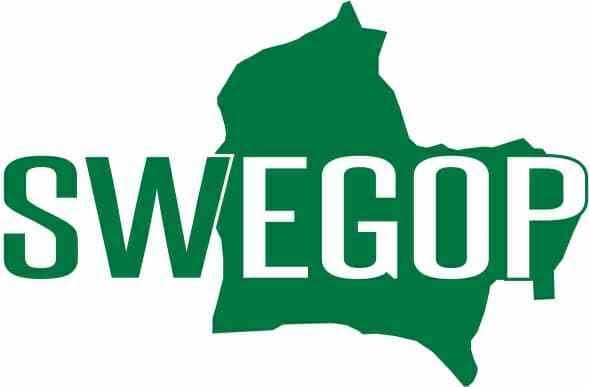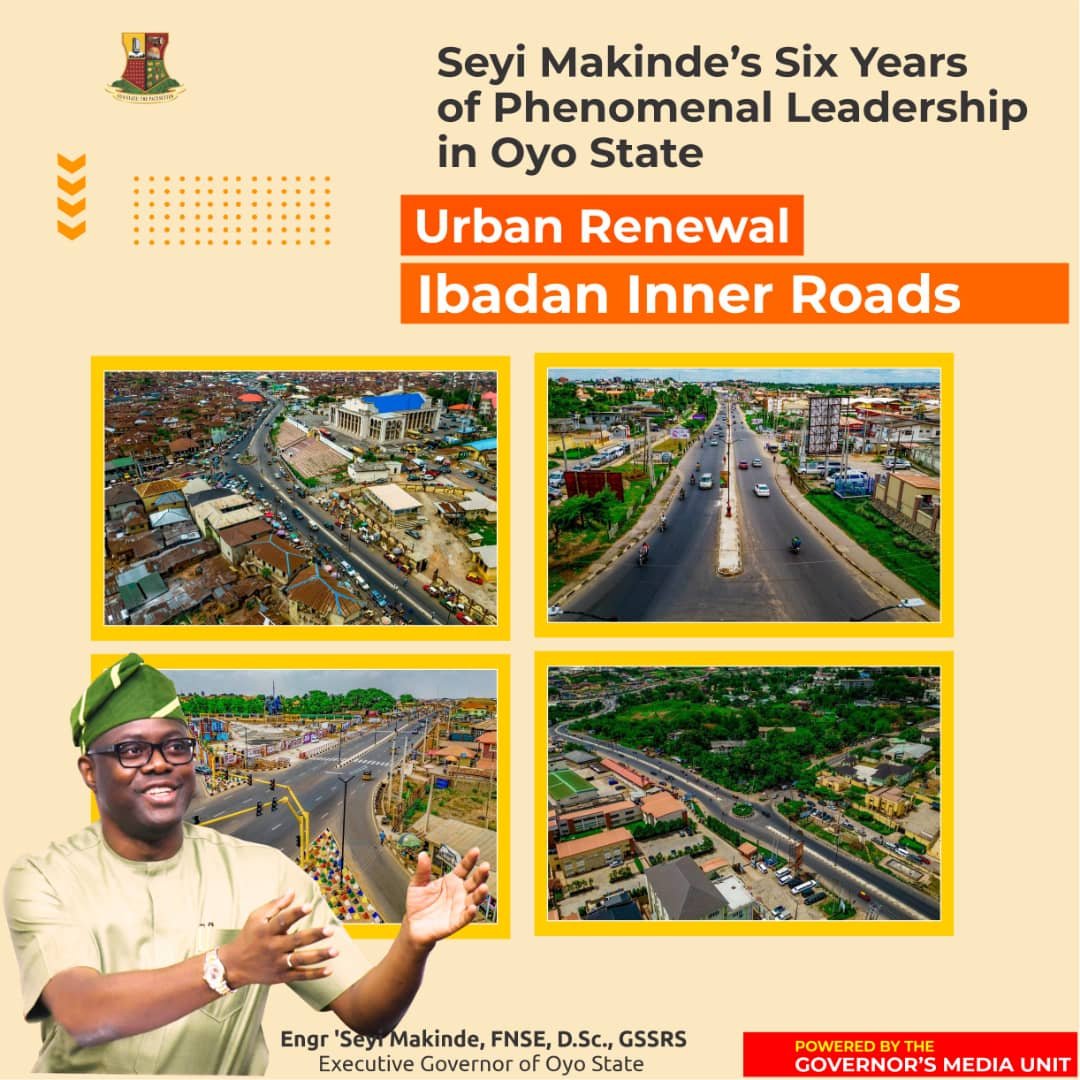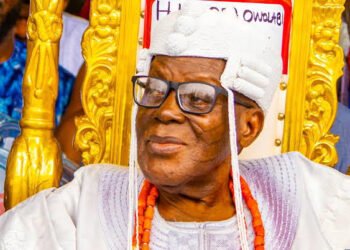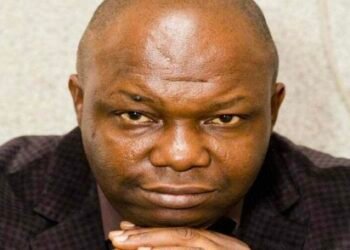By Festus Adedayo
“Where the cat is a kitten, the court is wretched… No man there would rest at night because of rodents, for we mice would destroy many men’s malt, and you rats would tear men’s clothes were it not for the cat of the court who can pounce on you. If you rats had your way, you could not rule yourselves” – William Langland, ‘The Parliament of Rats and Mice’.
There is this bitterly hostile rivalry between cats, mice and rats that is as old as antiquity. Unable to find a solution to this constant rodents/cats squabble, Odolaye Aremu, Kwara State, Ilorin’s dadakuada music exponent, retrieving his muse from ancient Yoruba wisdom, sang that only God could settle this endless rivalry – Olo’un lo le se’dajo ologbo at’ekute’le. In 2014, British’s House of Commons attempted to exploit this rivalry by using one to neutralize the other. Rising in parliament to debate the infestation of the House buildings built in 1860 by a huge mice population, MP Anne McIntosh said, “It is a matter of fact (that) the mice population is spiraling out of control.” To combat the rodents, members suggested storming the House of Commons with a herd of cats.
“The Parliament of Rats and Mice” is the title of the prologue to William Langland’s Piers Plowman. Considered to be one of the greatest works of English literature of the Middle Ages, it is an allegory of cats and rats, a narrative that tellingly depicts their rivalry. Though a social commentary on control of central power and authority during the reign of English king, Richard II, (1377-99) it is also a commentary on the disorder and abuse in government of his reign. Just ten years old when his grandfather died, Richard’s reign was fraught with crises, ranging from economic, social, political, to the constitutional. It became so bad that a “continual council” had to be set up, with the purpose of “govern(ing) the king and his kingdom.” Excesses of Richard II and his courtiers became intolerably high, including high level of corruption among royal councilors and advisers which the parliament could not stomach. Led by John of Gaunt, Duke of Lancaster and son of Edward III, the king’s uncle, the crown and the royal family considered the parliament’s eventual inquisition as threat to its power. Langland’s allegory peered searchlight into this chaos, representing the cat as John of Gaunt and the kitten as Richard II.
After so many squabbles between them, the rats concluded that the world would have peace if rodents let the kittens be. One rat, addressing its colleagues, said, “Though we had killed the cat, another would come to catch us and all our kind, although we creep under benches. Therefore I advise all the commons to let the cat alone… Where the cat is a kitten, the court is wretched. That is witnessed in Holy Writ, to whoever will read it: ‘Woe to thee, O land, when thy king is a child.’ No man there would rest at night because of rodents, for we mice would destroy many men’s malt, and you rats would tear men’s clothes were it not for the cat of the court who can pounce on you. If you rats had your way, you could not rule yourselves.”
Global human rights policeman, Amnesty International (AI) and the Nigerian government are acting out Langland’s allegory. AI, over the years, has become the “cat of the court who can pounce on you,” as it ferrets nooks and crannies, baying for the blood of “mice (that) would destroy many men’s malt.” Last week, AI accused the Muhammadu Buhari-led government of extrajudicial executions in the Southeast and Niger Delta areas of Nigeria, as well as what it called “heinous crimes of enforced disappearances” of persons. It linked unknown whereabouts of persons to government. Said AI’s Media Manager, Isa Sanusi, “Not only these tragic disappearances, but also the government’s continuing failure to establish the truth and bring justice to their families, are growing stains on Nigeria’s reputation. Scores of disappearance cases…remain unresolved and cast doubt on Nigerian government’s commitment to keeping its own citizens safe.”
Sauced with blood-curdling examples, AI’s frightening allegations were made on the anniversary of the International Day of Support for Victims of Enforced Disappearances. Sister to a 33-year-old businessman whose disappearance since August 2014 after his arrest by Nigerian policemen, was quoted by AI to have said: “My brother’s disappearance affected everyone at home. We just decided to leave everything to faith, hoping he will show up one day. But we need closure, for us to know what actually happened to him. As it is now, nobody knows whether he is alive or dead”.
Another was the celebrated disappearance of Abubakar Idris, known as Dadiyata. A university lecturer and vocal government critic, Dadiyata was abducted from his Kaduna home on August 2, 2019 and his whereabouts is shrouded in secrecy. He was a critic of the Kaduna state governor, Nasir El-Rufai. Another case cited by AI was that of 15 year-old Emmanuel John. Arrested by soldiers in a raid of Synagogue church at Oyigbo in Rivers State in October, 2020 while soldiers were searching for members of the Indigenous People of Biafra, (IPOB) Emmanuel’s whereabouts too has remained unknown. Yet another was 44-year old Felix Adika. After his arrest by the Bayelsa state DSS on February 27, 2016, for alleged membership of the Niger Delta militancy, his family last saw him in March, 2019.
Recently, in a BBC piece she penned, Adaobi Tricia Nwaubani, Nigerian journalist and novelist, depicting the fad of “unclaimed bodies” of “missing people,” allegedly wasted by policemen on the streets of Nigeria, wrote about the experience of an Anatomy student of the University of Calabar, 26-year old Enya Egbe, who fled from his anatomy class upon seeing the body of a friend of his, hitherto declared missing, whose corpse was the specimen to be worked upon.
AI also alleged that Nigerian security forces’ clampdown on IPOB militants has resulted in a gale of arbitrary arrests, detentions, enforced disappearances and extrajudicial executions in the Southeast and Niger Delta area. It claimed that “the whereabouts of at least 50 suspected members of IPOB arrested in Oyigbo, Rivers State, are still unknown since October and November 2020.” So also 41-year old Izuchukwu Okeke, a commercial motorcycle rider who was last seen on July 5, 2021, after his invitation by the police in Owerri, Imo State.
“The cases of at least 200 people – including former militants from Niger Delta, members of IPOB, #EndSARS protesters and security suspects believed to have been subjected to unresolved enforced disappearances in Nigeria have been documented by Amnesty International – The real number is believed to be higher. Nigerian security forces often cite the anti-terror law that allows the authorities to hold people without charge or trial in unofficial places of detention, often without contact to the outside world in practice, clearly increasing the risk of people disappearing after being detained,” said AI.
While it could put up with allegation of the impunity of Nigerian police’s disappearance of persons which has been national pastime in Nigeria from time immemorial, the Buhari rat was pissed off at the temerity of the cat to question its right to urinate inside the soup bowl. In a reply to AI, similar to the flipping of an enraged rat’s whiskers, Garba Shehu, presidential spokesman, accused AI of championing the matters of “a tiny dot in a circle,” which he euphemized as “those that violently oppose the Federal Government of Nigeria.” He could not stand AI “parroting the line of Nnamdi Kanu and IPOB, a proscribed terror organization.” He also claimed that “controversial American lobbyists are paid hundreds of thousands of dollars annually… laundering IPOB’s reputation in Washington DC.”
Global Terrorism Index, (GTI) n a 2015 document produced by the Institute for Economics and Peace, gave a comprehensive summary of key global trends and patterns in terrorism of the preceding 15 years. With data from the Global Terrorism Database (GTD) GTI said terrorism had become highly concentrated, “in just five countries — Iraq, Nigeria, Afghanistan, Pakistan and Syria…. (countries which) accounted for 78 per cent of (global) lives lost.” It said further: “Nigeria has experienced the largest increase in deaths from terrorism… There were 7,512 fatalities from terrorist attacks… an increase of over 300 per cent. The country houses two of the five most deadly terrorist groups (in the world)…Boko Haram and the Fulani militants.” Yet, the government of which Shehu is a megaphone has deodorized the terrorism of Fulani herders, as well as bandits’, refusing to label the latter terrorists. It seems obvious that government is aware that the moment it does, many of the Northern bigwigs who offer nesting place for terrorists and their allies being masqueraded as bandits, would face the wrath of the globally authorized cats.
Justifying, rather than repudiating the allegations by the AI, Shehu wondered why the international organization would be interested in the case of an “IPOB (that) murder(s) Nigerian citizens… kill police officers and military personnel and set government property on fire, (who have now) amassed a substantial stockpile of weapons and bombs across the country.” He then propounded a racist counterfactual, a line of thought prevalent among and deployed by African despots to racially profile western opposition to their tyranny and thus legitimize their despotism: “Were this group in a western country, you would not expect to hear Amnesty’s full-throated defence of their actions. Instead, there would be silence or mealy-mouthed justification of western governments’ action to check the spread of ‘terrorism.’”
Astonishingly, Shehu then queried AI’s legality in Nigeria. “Amnesty International has no legal right to exist in Nigeria,” he said. “The Nigerian government will fight terrorism with all the means at its disposal (italics mine). We will ignore Amnesty’s rantings… an organization that does not hold itself to the same standards it demands of others,” he concluded.
This cat and mouse tiff has endured between AI and the Buhari government almost since the latter’s inception. At a time, AI alleged that, in the name of fighting insurgency, Nigerian soldiers were massacring civilian population in the northeast. In 2019, same Nigerian government engaged in a spat with respected Wall Street Journal when it revealed that over 1,000 Nigerian soldiers killed by Boko Haram insurgents were secretly and unceremoniously buried in a graveyard at Maimalari Army barracks in Borno State.
Government’s attempt to query the legitimacy of AI for doing a job whose modus operandi is known all over the world is baffling and reveals its naivety or insincerity. Or both. The question to first ask is if Shehu was aware that Nigeria is a signatory to international legal obligations under the International Covenant on Civil and Political Rights, (ICCPR) as well as the International Convention for the Protection of All Persons from Enforced Disappearances? Does he know that by being a signatory to the conventions, Nigeria had ceded the right to “investigate, prosecute, punish and provide remedies and reparation for the crimes of enforced disappearance” to the AI?
It bears stating that AI is always at loggerheads with rogue governments all over the world that have no regards for the lives of their people. In Nasirabad, Sindh, Pakistan on April 17, 2017, like Nigeria’s Dadiyata, Hidayatullah Lohar was forcibly disappeared. An activist, his abductors, men in police uniform and civilian clothes, rough-handedly disappeared him from the school where he taught, shoved him inside a double-cabin grey coloured vehicle and his whereabouts, since then, has become a mystery. In same Pakistan in 2017 and 2018, repeatedly harassed blogger, Ahmad Waqass Goraya, was also forcibly disappeared, alongside three other bloggers in Punjab. Their sin was that they ran Facebook pages considered to be critical of Pakistani military’s policies. Same happened during the Brazilian military dictatorship in 1964 where 434 political deaths and disappearances reportedly occurred between 1946 and 1988.
As Langland said in ‘The Parliament of Rats and Mice’, humanity will never have rest at night if heartless rats are left to inflict destruction on the world. This philosophy explains the establishment of agencies of cats empowered to pounce on them. Yoruba have a saying that if a mentally challenged was left unchecked to do whatever they liked with the remains of their mother, they could barbecue it. If despots and rogue governments, especially in Africa, were left unpoliced, they will turn the state into a field of blood. That was why the world criminalized in July, 2002, through the Rome Statue of the International Criminal Court, forced disappearance (or enforced disappearance). It is a secret abduction or imprisonment of a person by a state or political organization, or by a third party “with the authorization, support, or acquiescence of a state or political organization, followed by a refusal to acknowledge the person’s fate and whereabouts, with the intent of placing the victim outside the protection of the law.”
IPOB has acted like a demented organization, inflicting irresponsible and senseless violence on the people of the southeast. Its sadism reflects the kind of leadership that Nnamdi Kanu gives it. It kills, maims and orchestrates untold arson on government buildings, with a magisterial impunity that must never be allowed in a community of human beings. However, Nigeria has gone past the military despotism of 1984 – whether George Orwell’s or the cow-obsessed despot’s – where Bartholomew Owoh and his ilk could be executed retroactively. The moment we laud, rather than heckle government in its trampling on human rights, no matter who the victim is, we lose an essential component of human essence. Felons abound all over the world and an eye for an eye would make the globe go blind. With patent bias harboured by the head of this government for Igbo and anyone else but the Fulani and his blood-soaked pedigree, it is dangerous for humanity to hand over Nigeria’s remains in his hand, unchecked. He will willingly make suya of it.
It is a notorious fact that his government’s sense of justice is warped and self-serving. Fulani nomads’ pillaging, acknowledged by the Terrorism Index, which made it to declare Fulani herders as a global terror as far back as 2014, is not worth the labeling of terrorism in the lingua franca of the Nigerian government; not the terrorism of northwest felons, even when they downed a military jet. Comparatively small-scale irritation of felons of southeast, spearheaded by Kanu and separatist agitators of southwest, never known to have shed a pint of blood, however provoke the misplaced hyper brawns of the government.
It is not difficult to explain the anger of this government against Amnesty International and its phobia for public disclosure. An English proverb says that evildoers are evil dreaders. Yoruba’s own version of this is that executioners mortally dread the presence of swords in their vicinity. Government’s dread manifests in its choice not to name Boko Haram sponsors all this while, even when requested by Rtd. Commodore Kunle Olawunmi and even Mary Beth Leonard, U.S. Ambassador to Nigeria last Monday. Leonard had said America was eager to help Nigeria in the disclosure. Could government’s dread of disclosure be a consequence of fear of its own shadow? Till date, government hasn’t said a word about the retired Commodore’s maggots-dripping allegations of its covert boost for insurgency.
Due to the collapse of the mirror that our society once used to reflect its core values, with which it identified evils in human action, it goes without saying that this Amnesty International and government’s cat and mouse tiff would be viewed by many Nigerians with the APC/PDP, region and religion lens.
As I write this, the pulsating rhythm of British reggae music sensation, UB40’s highly apocalyptic track, in the album entitled Labour of Love, the band’s fourth studio album released in the UK on September 12, 1983, filtered into my ears. Denouncing evil doers represented in a Johnny “who’s too bad,” who was busy “robbing and stabbing, looting and shooting,” UB40 had asked pointedly, “One of these days, when you hear a voice say come, Where you gonna run to?” It is such question we should ask Nigerians who legitimate known evils of this government. So, like UB40, I ask, when individuals become personal victims of this governmental evil which they play the ostrich in labeling its correct name, where will they run to?
•Dr Adedayo is a lawyer, social critic and columnist.































